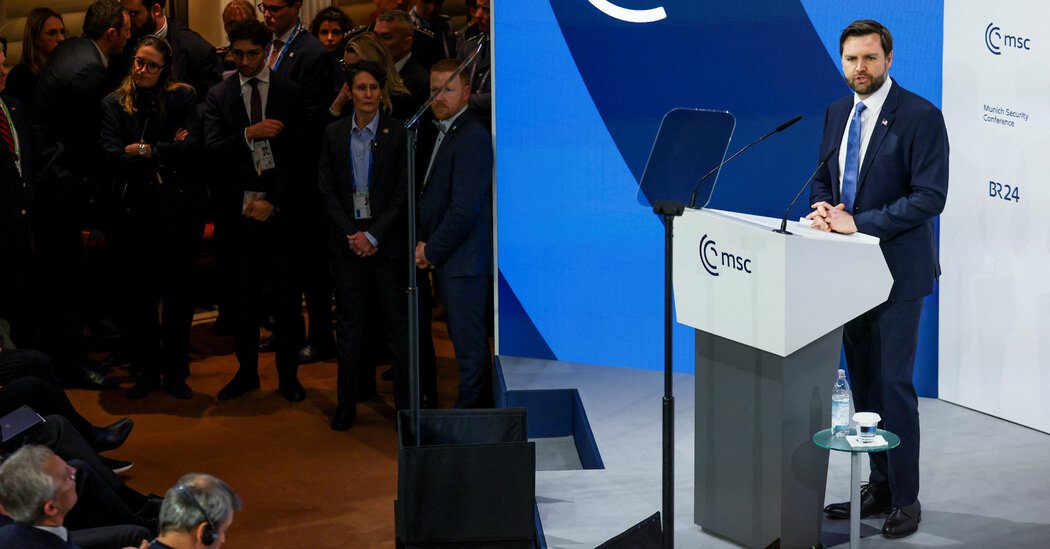

On Friday, Vice President JD Vance addressed European leaders, highlighting that their most significant security threat stems not from military actions by Russia or China or interference from Moscow in elections. Instead, he identified what he referred to as “the enemy within.” This encompasses their own actions against abortion demonstrations, restrictions on free expression, and the marginalization of political parties deemed extreme.
His remarks created a moment of astonishment among the hundreds present at the Munich Security Conference. Attendees had gathered anticipating insights into the Trump administration’s strategies for resolving the Ukraine conflict and bolstering Europe’s defense against a growing Russian presence.
In a surprising turn, Vance presented a vision of a potential shift in transatlantic relationships under Trump’s leadership—one that could prioritize connections with previously sidelined political factions that align on issues such as migration, identity, and digital discourse, rather than relying on the traditional alliances that have characterized post-war stability.
Vance directed his comments toward his German hosts, who are set to elect a new chancellor soon, urging them to reconsider their hesitance to collaborate with a party often associated with controversial Nazi phrases and marginalized from government due to its extremist reputation.
This unusual commentary on the inner workings of a democratic ally’s politics drew audible reactions from the audience. While he did not explicitly name the Alternative for Germany (AfD), Vance alluded to the consensus among mainstream German politicians to exclude this group, which has been officially categorized as extremist by German intelligence agencies.








